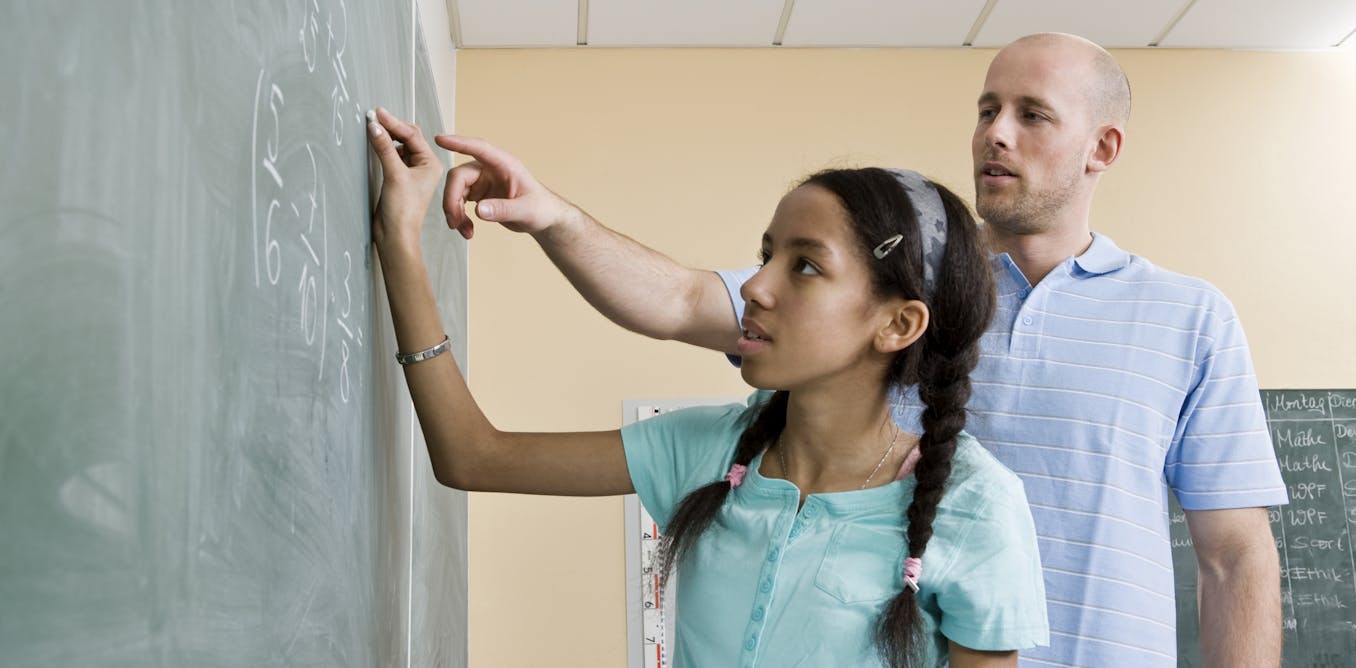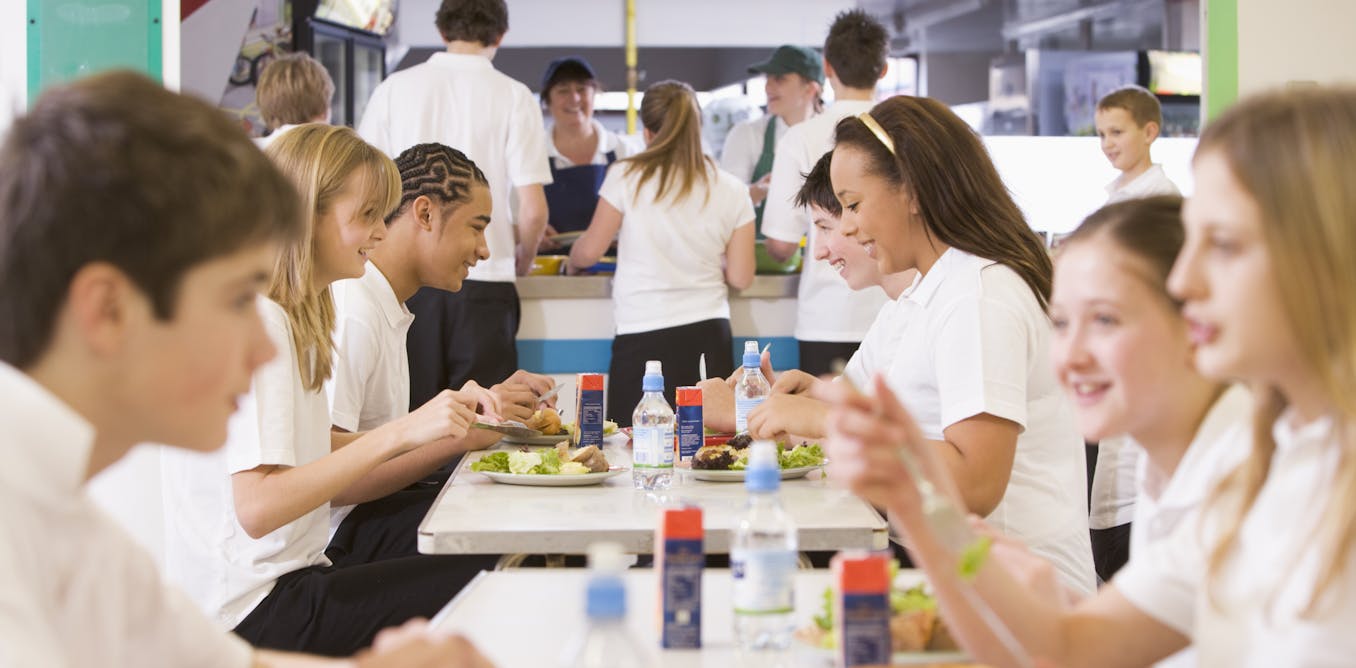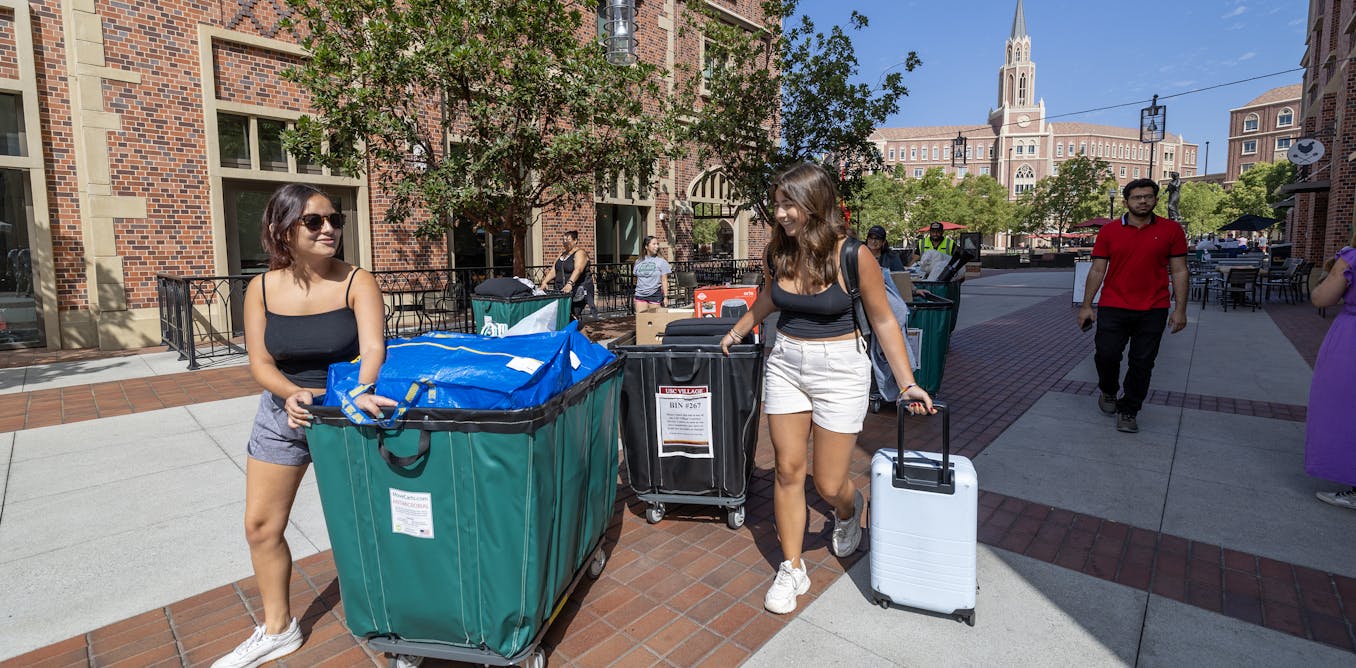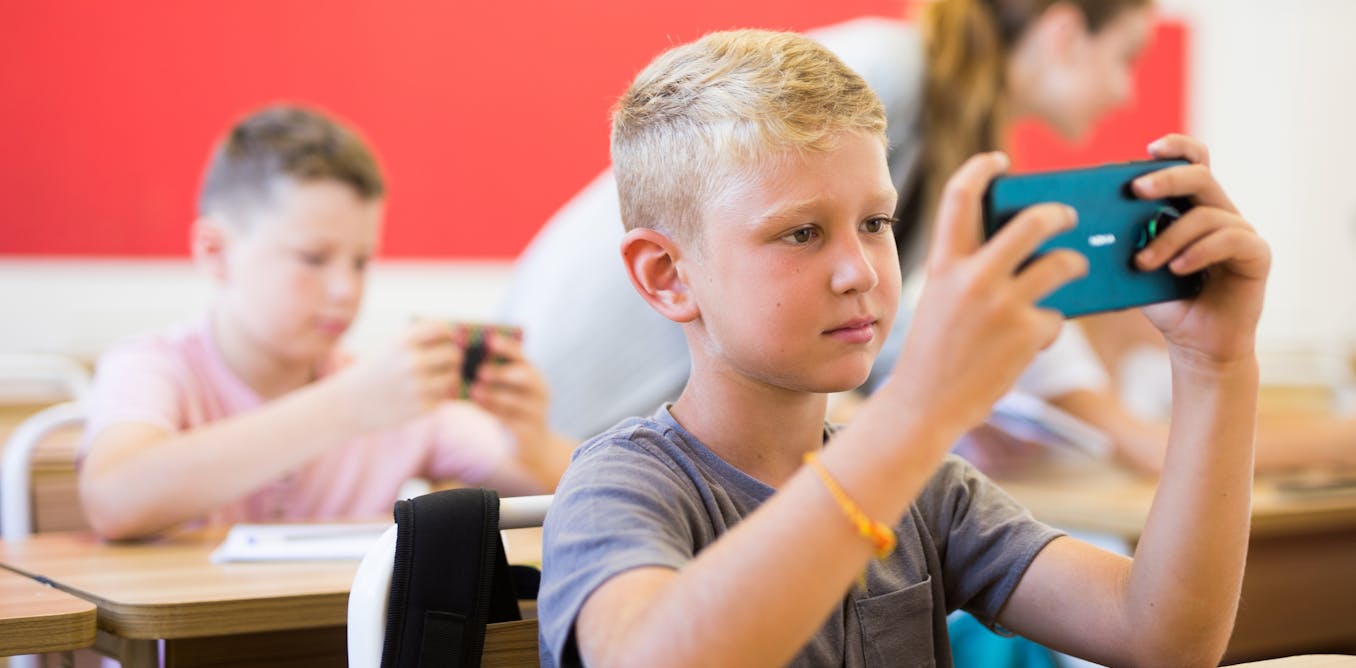What’s the point of drama class? It teaches the workplace skills employers want, for a start
Many employers want staff who can work in a team, manage complex projects and communicate well. They value problem-solving skills and adaptability. Now consider the skills taught in drama class.
The Conversation > Education
African immigrant students draw on family and community strengths in quest for college
African immigrant students sometimes experience negative stereotyping, marginalization and low expectations from teachers. But emerging research shows they are being mischaracterized.
The Conversation > Education
Here’s why more Australian scientists should team up with authors on books about animals
Engaging and scientifically accurate children’s books on Australian animals are sorely lacking. Fostering more collaboration between authors and scientists can enrich children’s literature.
The Conversation > Education
‘Time poverty’ can keep college students from graduating − especially if they have jobs or children to care for
Jobs and child care duties can seriously hamper a student’s chances of finishing college. The problem affects Black and Hispanic students and women in particular.
The Conversation > Education
AI pioneers want bots to replace human teachers – here’s why that’s unlikely
Artificial intelligence ‘bots’ may be widely available to teach in the coming years. But will they be effective? An expert on technology in education weighs in.
The Conversation > Education
If you want Americans to pay attention to climate change, just call it climate change
Phrases like ‘climate crisis,’ ‘climate emergency’ or ‘climate justice’ might seem to escalate the urgency, but a large survey shows they don’t help and may actually hurt.
The Conversation > Education
Bilingualism under threat: structured literacy will make it harder for children to hold on to their mother tongue
New Zealand’s bilingual children often lose their mother tongue by the time they leave school. But there are fears that use of English-based decoding in structured literacy will hasten this decline.
The Conversation > Education
The numbers don’t add up: why the government needs to slow down on sweeping changes to NZ’s maths curriculum
Structured maths has been put forward as the answer to New Zealand’s mathematics test results. But the government’s rationale for sweeping changes are based on numbers that don’t tell the full story.
The Conversation > Education
Verifying facts in the age of AI – librarians offer 5 strategies
Library scientists offer tips and tricks to figure out if a particular online news article is reliable or fake.
The Conversation > Education
Real equity in math education is about more than good grades and test scores
Developing students’ mathematical power and confidence is key to creating true equity.
The Conversation > Education
AI tutors could be coming to the classroom – but who taught the tutor, and should you trust them?
The government is calling for AI tutors. But before their introduction, we need to consider where these tutors are getting their information – and who that information belongs to.
The Conversation > Education
Food for thought: how NZ’s school lunch programme can add learning and local economies to the menu
The government is reducing the scope and scale of the free school lunch programme. But evidence suggests expanding it would be good for children, communities and local businesses.
The Conversation > Education
Legal risk and more paperwork: do health and safety laws threaten the great Kiwi school trip?
New research shows high levels of teacher anxiety and frustration over legal liability and paperwork for school trips. But there are ways to maintain this crucial part of the curriculum.
The Conversation > Education
Why US schools need to shake up the way they teach physics
Making physics more engaging means meeting students where they are, highlighting the ways in which it plays a role in their communities.
The Conversation > Education
If the NZ government wants to improve student outcomes, it needs to invest more in school-based healthcare
NZ’s teachers say they want to help students but they can’t do it all. And many feel like they are being stretched to support their students’ mental and physical health well in the classroom.
The Conversation > Education


















